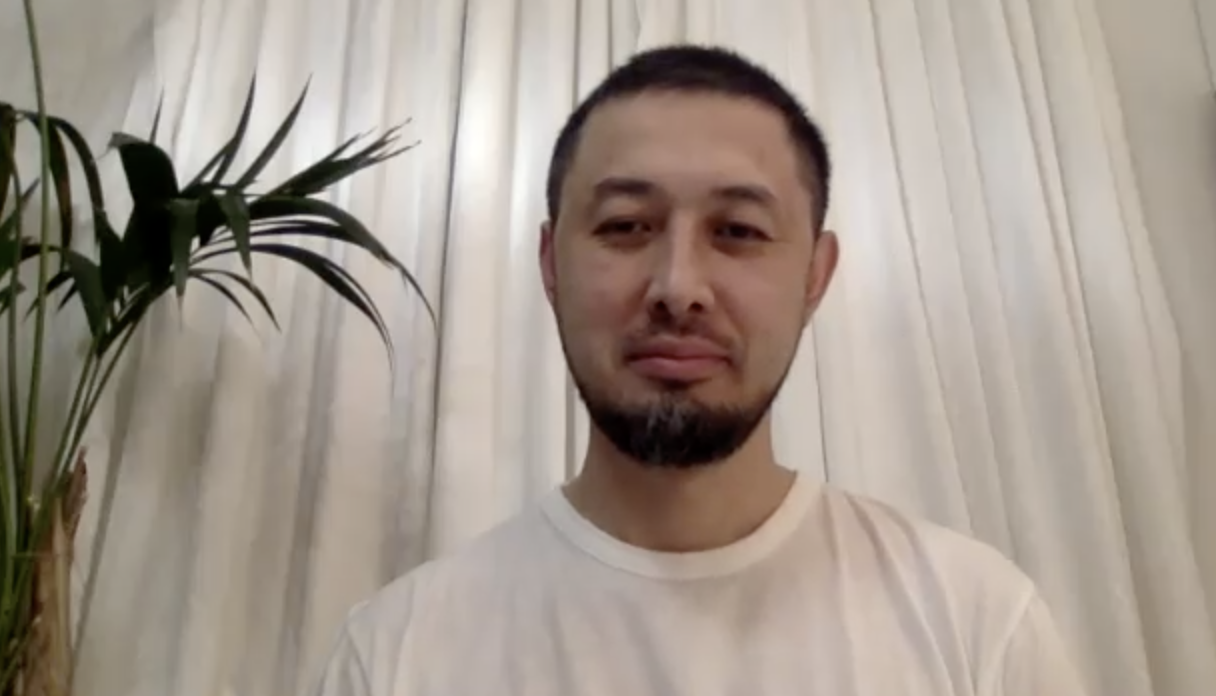The Clooney Foundation for Justice’s TrialWatch initiative monitored the trial in Kazakhstan of Alnur Ilyashev, an activist convicted on June 22 of “spreading false information during an emergency.”
While he was given a non-custodial sentence, the court’s decision violates his right to freedom of expression. Indeed, the charges were based on protected speech—social media posts in which Mr. Ilyashev criticized the authorities for corruption and incompetence, including in response to the COVID-19 pandemic. Notably, the trial was conducted by video-conference due to the pandemic and was also marred by serious irregularities and an apparent rush to judgment. A full report assessing the trial under international human rights law will be released soon.
Mr. Ilyashev’s trial comes amidst a renewed crackdown on activists in Kazakhstan, relying in part on the COVID-19 pandemic as a pretext—what has been described by human rights groups as “use [of] a state of emergency as an excuse to prosecute [Kazakhstan’s] critics and opponents.”
In addition to violating Mr. Ilyashev’s right to freedom of expression, the conduct of the ‘remote proceedings’ in this case violated the defendant’s rights to be tried in his presence, to defend himself, and to communicate with counsel. Participants in the video-conference were barely audible on numerous occasions. At one point, not only was the defendant, who joined from prison, moved off screen, but screams were heard, raising concerns about mistreatment. Importantly, defense counsel stressed the disadvantages they experienced because of their inability to consult their client. At the same time, the court showed a lack of impartiality, ignoring requests to continue the examination of a key prosecution witness on a second day, as well as requests to call additional witnesses.
CFJ calls on Kazakhstan to reverse Mr. Ilyashev’s conviction and allow him to exercise his right to freedom of expression.
Background
Mr. Ilyashev is a long-time activist. He had previously requested to hold peaceful protests 35 times—only to be rejected each time. After suing the ruling Nur-Otan party, Mr. Ilyashev had been the subject of a counter-suit, as a result of which he had been ordered to recant his criticism, which he refused.
There are grounds for concern regarding Mr. Ilyashev’s arrest and detention. First, the police appear to have harassed his relatives during the investigation. Second, Mr. Ilyashev was kept in detention from his arrest on April 17, 2020 until his release at the conclusion of the proceedings, despite repeated requests for bail and without adequate medical treatment in prison—including a significant delay in examining him when he was suffering pulmonary symptoms.
Mr. Ilyashev was charged with violating Article 274 of the Criminal Code of the Republic of Kazakhstan, which criminalizes the “[d]issemination of knowingly false information, creating a danger of violation of public order or infliction of substantial harm to the rights and legal interests of citizens or organization or the interests of society or the state, protected by the Law.” Article 274 also includes a sentencing enhancement for ‘dissemination of false information’ during a public emergency, which the prosecution asserted applied to Mr. Ilyashev’s case. But as the 2017 Joint Declaration by international experts on ‘Fake News,’ Disinformation and Propaganda states, “[g]eneral prohibitions on the dissemination of information based on vague and ambiguous ideas, including ‘false news’ or ‘non-objective information,’ are incompatible with international standards for restrictions on freedom of expression.”
Further, the defendant’s social media posts—such as referring to the ruling party as “crooks and thieves,” contrasting officials’ personal wealth with the limited funds raised to fight COVID-19, and mocking efforts by the Nur-Otan party to take credit for charitable work during the pandemic—constitute protected speech under the International Covenant on Civil and Political Rights, a treaty to which Kazakhstan is a party. Moreover, two of the posts referred to news articles as support for various allegations. As the defendant testified, “[i]n all my posts where I made any statements, I made links to publications.” By contrast, the prosecution theory appears to have been that “negative consequences [would be] created in the form of acts of civil disobedience, namely, mass non-compliance with quarantine” based on the posts.
During the trial, both defense counsel and the defendant challenged the impartiality of the judge, with the defendant stating: “[y]our attitude towards me is hostile, . . . let me formulate a written challenge, which will be transmitted to you.” Yet the judge’s troubling behavior, including interrupting defense counsel, refusing to permit the examination of defense witnesses, and ignoring technological issues with the video-conference, persisted. Additionally, the judge seemed to have little regard for a defense objection that one of the defense lawyers had not had adequate time to familiarize himself with the case file, refusing to grant an adjournment and instead concluding the trial extremely quickly.
View in Russian (русский).
